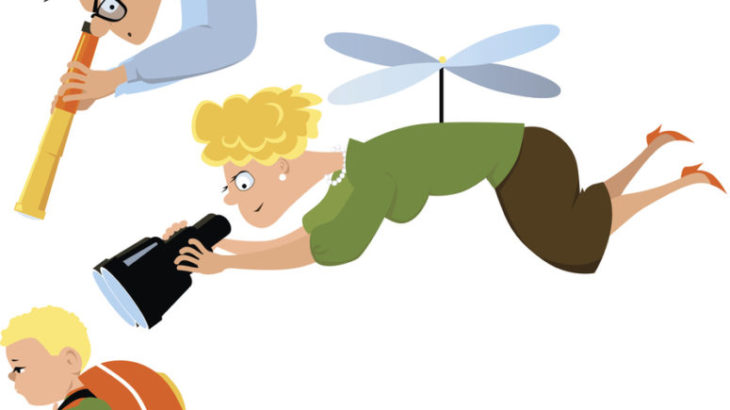What does “Helicopter Parenting” mean, and how do we know if it’s hurting our children?
Helicopter parenting refers to “a style of parents who are over focused on their children,” says Carolyn Daitch, Ph.D., Director of the Center for the Treatment of Anxiety Disorders near Detroit and author of Anxiety Disorders: The Go-To Guide. “They typically take too much responsibility for their children’s experiences and their success or failures.”
Helicopter parenting can develop for a number of reasons. One common reason is that we overcompensate. Adults who felt unloved, neglected, or simply didn’t have as much growing up, might find themselves overdoing when it comes to giving to their own kids.
Excessive attention and monitoring are attempts to correct events parents may have felt in their own upbringing. Peer pressure from other parents is another common reason we might become a helicopter parent. When parents see other over-involved parents, it can trigger a similar response.
In the short-term, helicopter parents can certainly be helpful to their children. We act like personal concierges who assist our kids with everything from sports to science projects. We run to the rescue when they forget their band instrument and we act as their personal chauffeurs from activity to activity.
But what effect does this have in the long-run?Researchers who have been studying the long-term effects of helicopter parenting, say there are several problems helicopter kids experience in adulthood. They actually have more health problems according to a 2016 study from Florida State University. Another effect is that these individuals often struggle with entitlement. Helicopter kids grow up without learning how to regulate their emotions, since their parents were quick to do that for them. Helicopter kids aren’t used to tolerating discomfort. Their parents shielded them from pain, and didn’t learn the proper coping skills needed.
Helicopter parenting may also have long-term effects on brain development. According to neuropsychologist William Stixrud, co-author of The Self Driven Child, it’s important to let a child take a trial and error approach because it teaches them to understand and overcome their limitations. Moreover, Stixrud’s 20 years research revealed that when parents continue to step in and over-parent, it alters the development of their prefrontal cortex, an essential part of the brain responsible for emotional regulation and decision making.
Of course, we only want the very best for our children. But are we doing more harm than good? As parents, we need to find the right balance. Sometimes that can be hard. I often share this piece of advice to my clients: Hold your child, guide your child, love them, but not too hard.
Here’s to Your Well Being,
Jodi Murphy, LCSW
Licensed Staff Therapist


